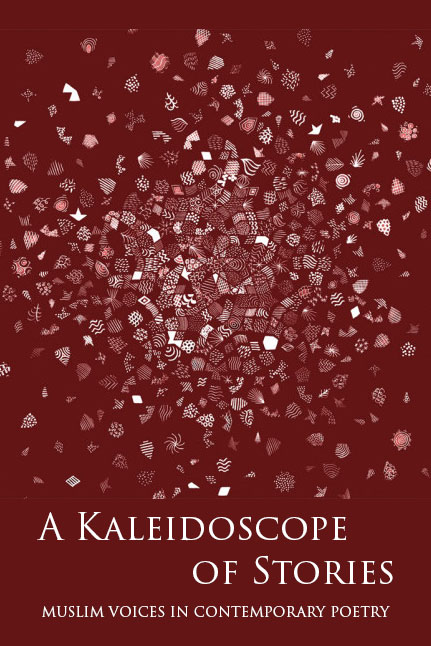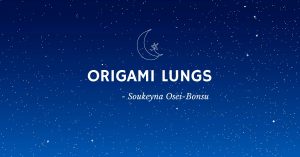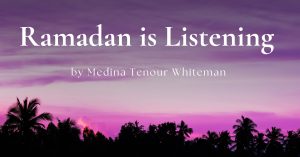From the soft rope we are
from the jagged tear in a canvas we are
from the wrecked and twisted bicycle we are
from the lengthy shadow of a lost world we are
from flickers at the edge of a dark wood we are
from an echoing empty stadium at midnight we are
from crumbs left for birds on a windowsill we are
from the signal sent from a ship’s fo’c’sle we are
From land sighted and land ignored we are
from polished silver laid out perfectly we are
From a peak wreathed in roseate cloud we are
from a low-lying hamlet under brown smoke we are
From rows of burgeoning grape-trellises we are
from a sunny valley between green hills we are
From the spontaneous defenses of our sovereignty we are
from silence in the midst of chaos we are
From dust flakes falling down an endless chute we are
from an abrupt announcement at the table we are
From a door slammed and a door left open we are
From blue fog suddenly filling a deep canyon we are
From no one left in the meeting hall but us we are
from just one more face in the billowing crowd we are
From oft-blessed in abundance from we know not where we are
from bereft never knowingly visited by angels we are
From fervent supplications each dawn religiously we are
from the last whispered breath of prayer when we die we are
when even stillness stands still
right where we are
O God in Your Magnificence and Glory
Who moves us and moves in us
without Whom we would not be
whoever and wherever we are
Bring out from us what light You will
and quench us with every breath
in Your only existence
when no more than a shadow of a shadow of a shadow we are
Small flickering light in Your window we are
tiny birdsong of distant jubilant whistling
heard near and far
we are

About the Poet
Daniel Abdal-Hayy Moore (1940-2016) rahimahullah, was born in 1940 in Oakland, California. He had his first book of poems, Dawn Visions, published by Lawrence Ferlinghetti of City Lights Books, San Francisco, in 1964, and the second in 1972, Burnt Heart/Ode to the War Dead. He created and directed The Floating Lotus Magic Opera Company in Berkeley, California in the late 60s, and presented two major productions, The Walls Are Running Blood, and Bliss Apocalypse. He became a Sufi Muslim in 1970, performed the Hajj in 1972, and lived and traveled throughout Morocco, Spain, Algeria and Nigeria, landing in California and publishing The Desert is the Only Way Out, and Chronicles of Akhira in the early 80s (Zilzal Press). Residing in Philadelphia since 1990, in 1996 he published The Ramadan Sonnets (Jusoor/City Lights), and in 2002, The Blind Beekeeper (Jusoor/Syracuse University Press). He has been the major editor for a number of works, including The Burdah of Shaykh Busiri, translated by Hamza Yusuf, and the poetry of Palestinian poet, Mahmoud Darwish, translated by Munir Akash. He has been poetry editor for Seasons Journal, Islamica Magazine, a 2010 translation by Munir Akash of State of Siege, by Mahmoud Darwish (Syracuse University Press), and The Prayer of the Oppressed, by Imam Muhammad Nasir al-Dar’i, translated by Hamza Yusuf (Sandala). In 2011, 2012 and 2014 he was a winner of the Nazim Hikmet Prize for Poetry. In 2013 he won an American Book Award, and in 2013 and 2014 was listed among The 500 Most Influential Muslims for his poetry. You can find out more about his life’s work at https://ecstaticxchange.com

This poem appears in A KALEIDOSCOPE OF STORIES - Muslim Voices in Contemporary Poetry
and was originally published in the collection The Soul's Home by Daniel Abdal-Hayy Moore.
A KALEIDOSCOPE OF STORIES - Muslim Voices in Contemporary Poetry brings together the myriad voices of eighty Muslim poets from diverse backgrounds to powerfully articulate what it means to be Muslim in the modern world. It provides a platform for Muslim voices to be heard speaking about their experiences in their own words, and offers an antidote to the stereotyped, one-dimensional portrayal of Muslims we see so often in the media.
The anthology gives the reader a glimpse of the thoughts, hopes and challenges of those who see the world through two or more cultural lenses and provides an authentically Muslim space for the expression of our spiritual, social and personal lives. It brings together the verses of multi-generational voices exploring themes including love and loss, identity and belonging and Islamic spirituality.




